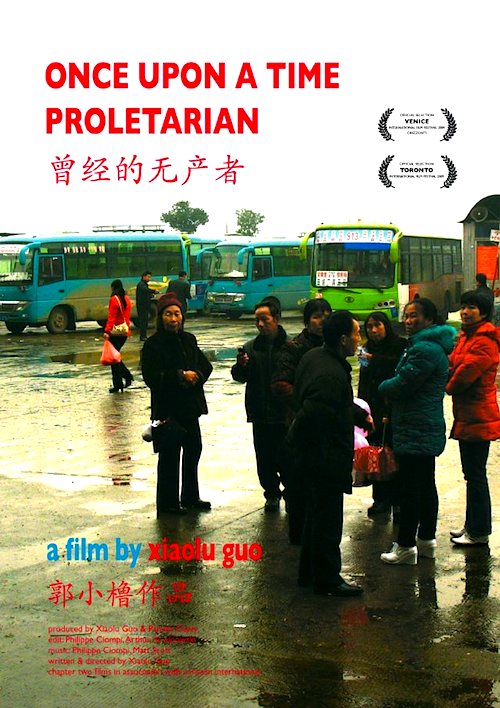 By Joe Bendel. At best, the peasants live at subsistence level. The workers are exploited and young entrepreneurs forgo today to invest for the future. Yet there are those making enormous sums of money and consuming conspicuously in contemporary China. Whether it is called globalism, crony capitalism, or old fashioned authoritarianism, Guo Xiaolu (born in China, based in Britain) gives a human face to those grappling with realities of today’s China in Once Upon a Time Proletarian (trailer here), which screens at the Asia Society this Sunday, launching their latest film series, Visions of a New China.
By Joe Bendel. At best, the peasants live at subsistence level. The workers are exploited and young entrepreneurs forgo today to invest for the future. Yet there are those making enormous sums of money and consuming conspicuously in contemporary China. Whether it is called globalism, crony capitalism, or old fashioned authoritarianism, Guo Xiaolu (born in China, based in Britain) gives a human face to those grappling with realities of today’s China in Once Upon a Time Proletarian (trailer here), which screens at the Asia Society this Sunday, launching their latest film series, Visions of a New China.
Like a documentary sampler platter, Proletarian presents twelve (or an uneven baker’s dozen) sketches of life in post-Olympics go-go China. Not surprisingly, the old peasant is bitter, expressing open nostalgia for the days of the Mao regime, when the peasantry was at the top of the country’s social hierarchy. Migrant workers are nearly as disillusioned, including those employed at luxury hotels. Though it might sound more pleasant than factory or farm work, their long shifts without bathroom breaks certainly would not pass muster with OSHA. Perhaps most intriguing is the young partner in a prospective chain of economy hotels. She is overseeing the construction of their second hotel, which when finished will cater to construction workers. That’s one way to ensure quality control.
As connective tissue, Guo films young school children reading ironic stories (the term joke would be too strong) from their readers, which do not really relate to the following profiles per se, but express the peculiar zeitgeist of unbalanced times. Eventually, though, Guo turns her camera on them in earnest, getting a sense of their personalities and ambitions. They are all bright and engaging. Indeed, they represent the best of their country’s future, yet for some reason the government is trying its best to make them scarce (particularly the girls, who appear somewhat under-represented).

Though largely following in the recent tradition of so-called Digital Generation (or D-Generate) of independent filmmakers, Proletarian is far more cinematic. Guo captures a number of evocative images and her black-and-white transition scenes are actually quite stylish. As one might expect, there is also a lot of blight and angst in Proletarian, but its speed-documentary format lends it greater pacing and variety than the typical vérité films associated with the movement.
Yet, like many D-Generate filmmakers, Guo is rather subversive in her approach, challenging the Communist state with the values and vocabulary generally considered leftwing in any western context. Just to underscore the disconnect between rhetoric and reality, she concludes the film with Paul Robeson’s recording of the Soviet anthem, which is quickly drowned out by angry Chinese post-punk hardcore music. It is hard to miss that symbolism. An effective corrective to the PRC state hype machine, Proletarian is definitely recommended for China watchers when it kicks off the Visions of New China series at the Asia Society this Sunday afternoon (9/25).
Posted on September 23rd, 2011 at 10:08am.